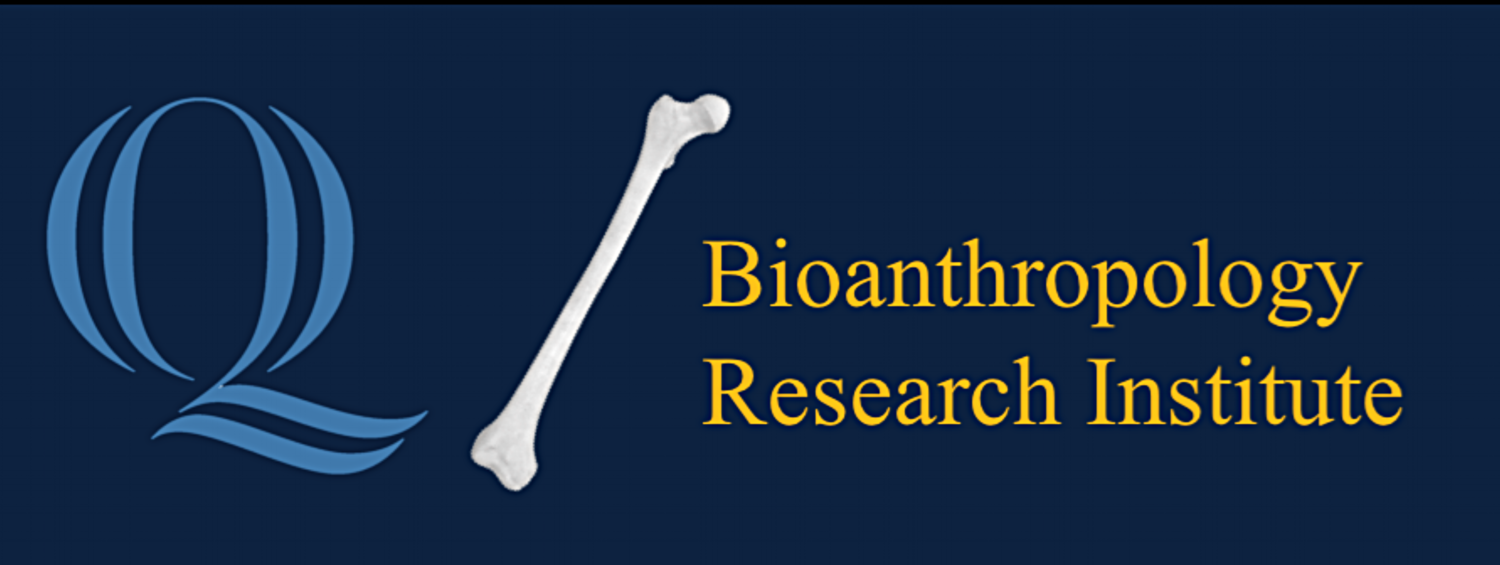London, UK
From May into June 2017, 12 Quinnipiac students and Dr. Jaime Ullinger traveled to London as part of an anthropology class titled, "Life After Death in London". Over the course of the semester, the students learned about bioarchaeology, the treatment of human remains in London, and the ethical treatment of human remains in general. The group visited various museums and cemeteries to apply their knowledge from class, but they were also able to sight-see and explore the city of London. After the class trip ended, several students stayed to research a skeletal collection located in the crypts of St. Bride's Church. Because of the extensive curation, the students were able to work on a project to determine if sex can be identified through metacarpal and metatarsal measurements. As of October 2017, the students have been able to present their findings at a bioarchaeological conference.
For more information visit: https://www.qu.edu/life/now/students-gain-unique-look-at-London-its-earliest-residents.html
Ras-Al Khaimah, UAE
From December 2016 to January 2017, Dr. Jaime Ullinger, Whitney Wachtarz, and Erika Danella traveled to the United Arab Emirates with a professor and two other students from the University of South Alabama. There, they helped curate a commingled skeletal collection from 4,000 years ago. Most days were spent working with the skeletal material, but the professors made sure that the students were able to experience Middle Eastern culture through food and field trips to other archaeological sites and Emirates. Being the first all-female archaeological team in Ras-Al Khaimah, the team was invited to meet His Highness Sheikh Saud bin Saqr al-Qasimi, Ruler of the Emirate of Ras al-Khaimah and member of the Federal Supreme Council of the UAE. This research trip not only allowed the students to apply their knowledge of osteology and bioarchaeology in a real-world setting, but it also provided the opportunity to experience and learn about a different culture.
For more information visit: https://www.qu.edu/life/now/research-team-evaluates-bones-in-united-arab-emirates.html
Eastern Hungary - BAKOTA Field School
The Bronze Age Körös Off-Tell Archaeology (BAKOTA) project is studying a Bronze Age cemetery population in Eastern Hungary, and aims to understand how this region intensified farming, craft production, and trade without corresponding increases in social inequality.
The Bronze Age Körös Off-Tell Archaeological (BAKOTA) Field School: Undergraduate Training in Fieldwork and Independent Research Reporting in European Archaeology is a summer program sponsored by Quinnipiac University and the National Science Foundation’s Research Experiences for Undergraduates Site program (#1460820).
During this six week program, selected undergraduate students will: 1) work with an international research team while they analyze archaeological material, 2) participate in seminars and workshops taught by experts on archaeological method and theory and the cultural history of Eastern Europe, 3) visit museums and archaeological sites, 4) plan and complete an independent research project with a faculty mentor, and 5) live in a small town and learn about life in Hungary from the villagers, Hungarian students, and visiting project participants. Professional development mentoring will take place before the program starts, throughout the research season, and post-project. Participants will also receive training in ethical and equitable fieldwork codes of conduct, including Responsible Conduct in Research (RCR) and sexual harassment awareness training.
The first two weeks of the research experience will be spent at Quinnipiac University where students will receive introductory training, participate in workshops related to academic writing and statistical techniques, learn about the background of the BAKOTA project, and establish a connection with their research project and mentor. The remaining four weeks will be spent in Hungary where the team will carry out the various research projects using archaeological material from BAKOTA project excavations.
The application process for the BAKOTA Field School is highly competitive; 8 students will be selected to participate. Selected undergraduates will receive room and board, travel, and a summer stipend (total: $3,000) due to generous support from the National Science Foundation Research Experiences for Undergraduates Sites Program.
For more information, visit http://bakota.net/the-field-school/








